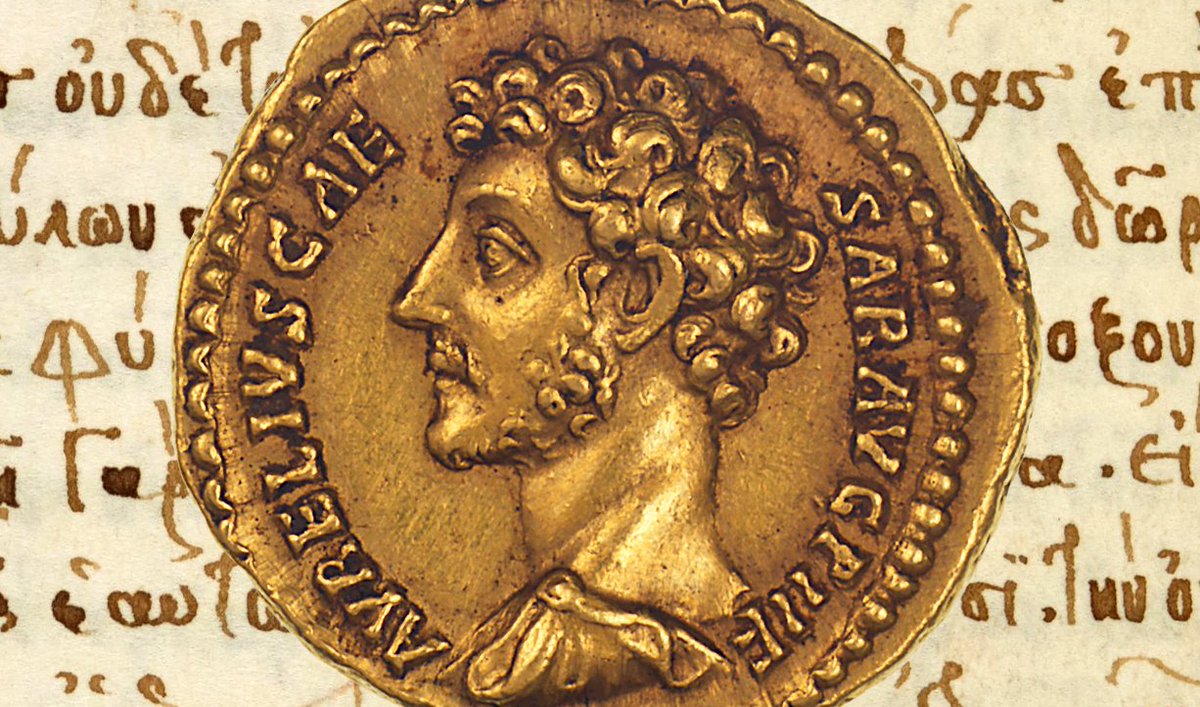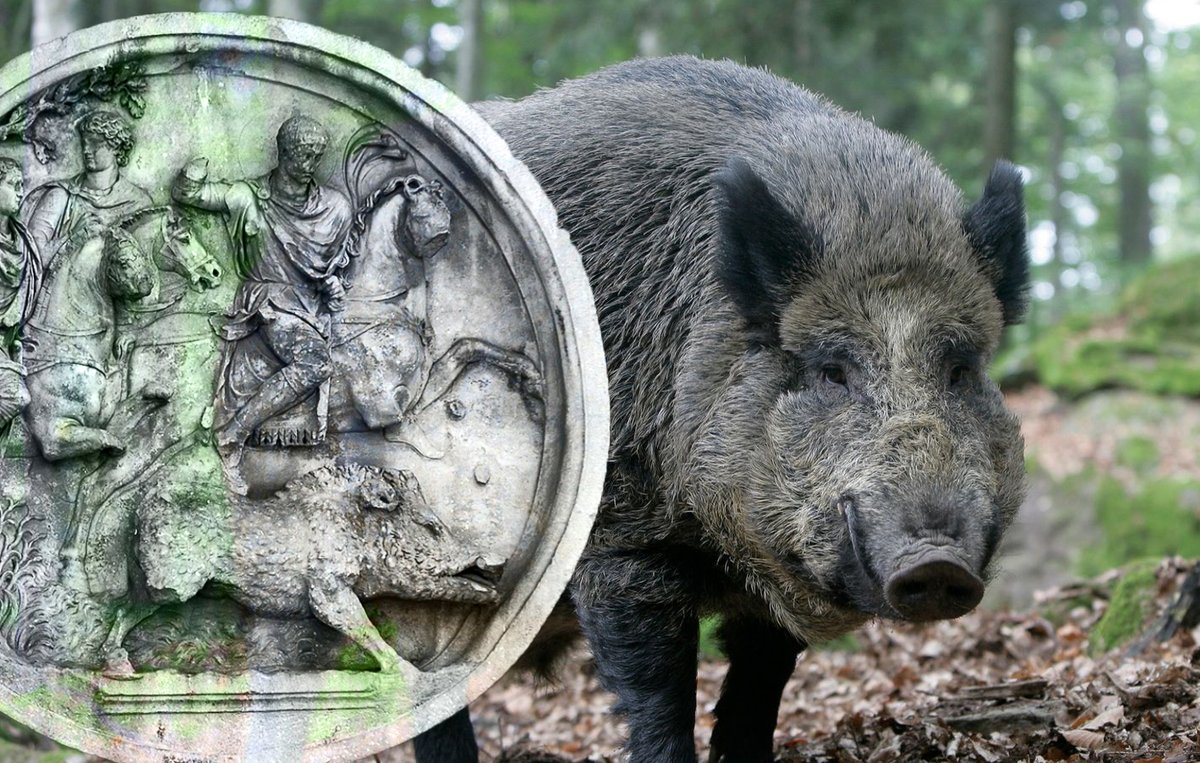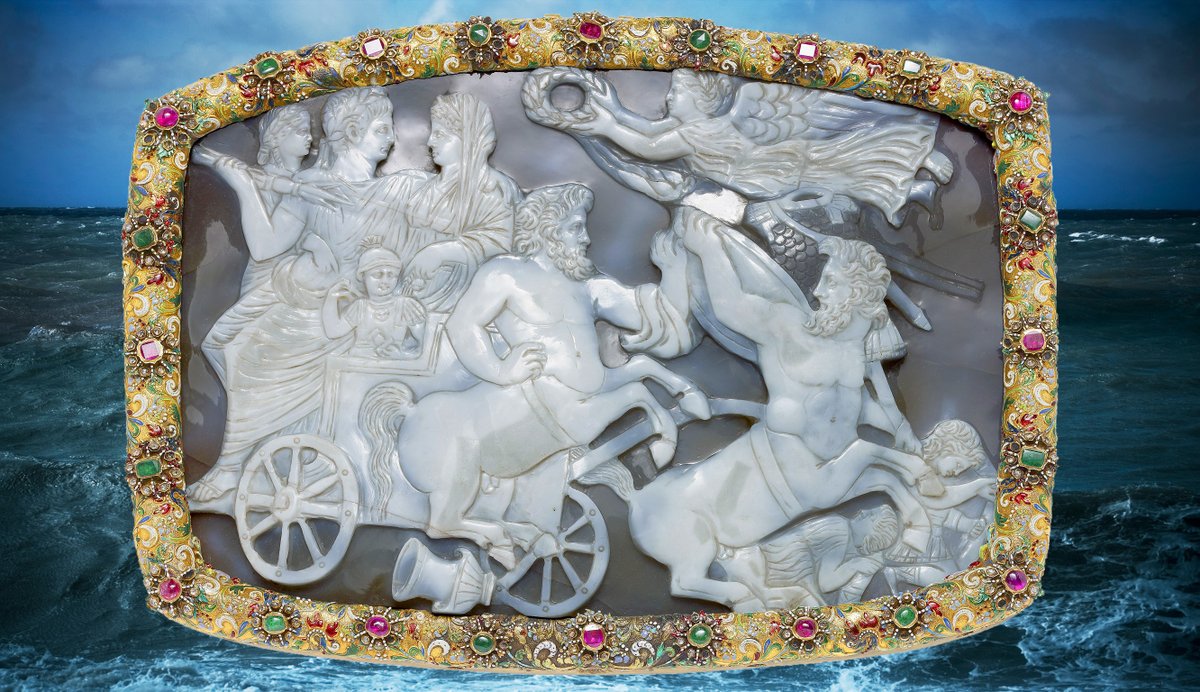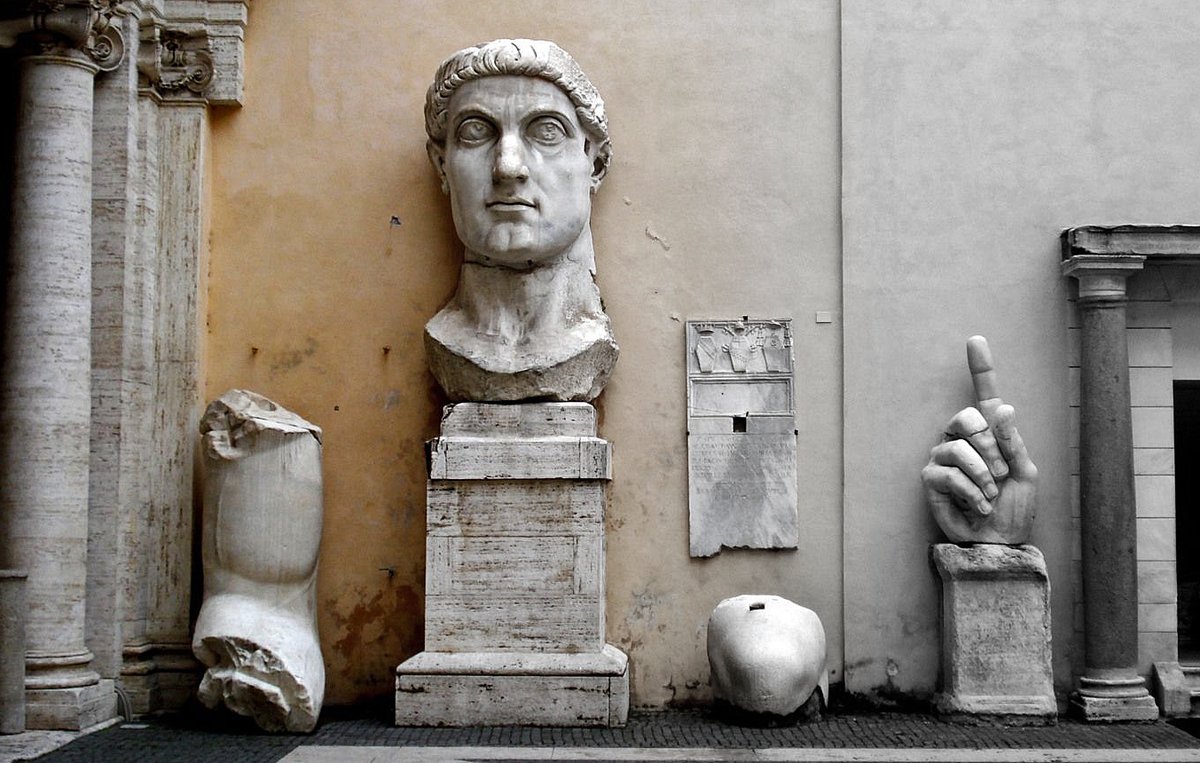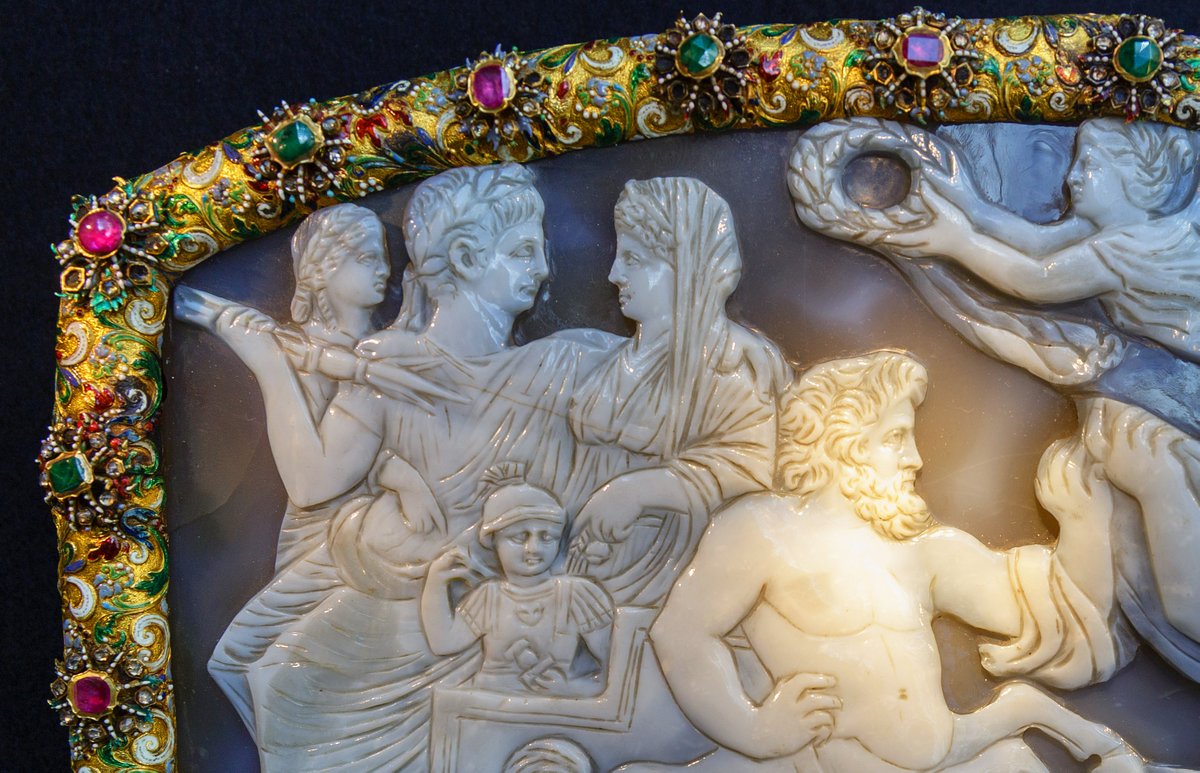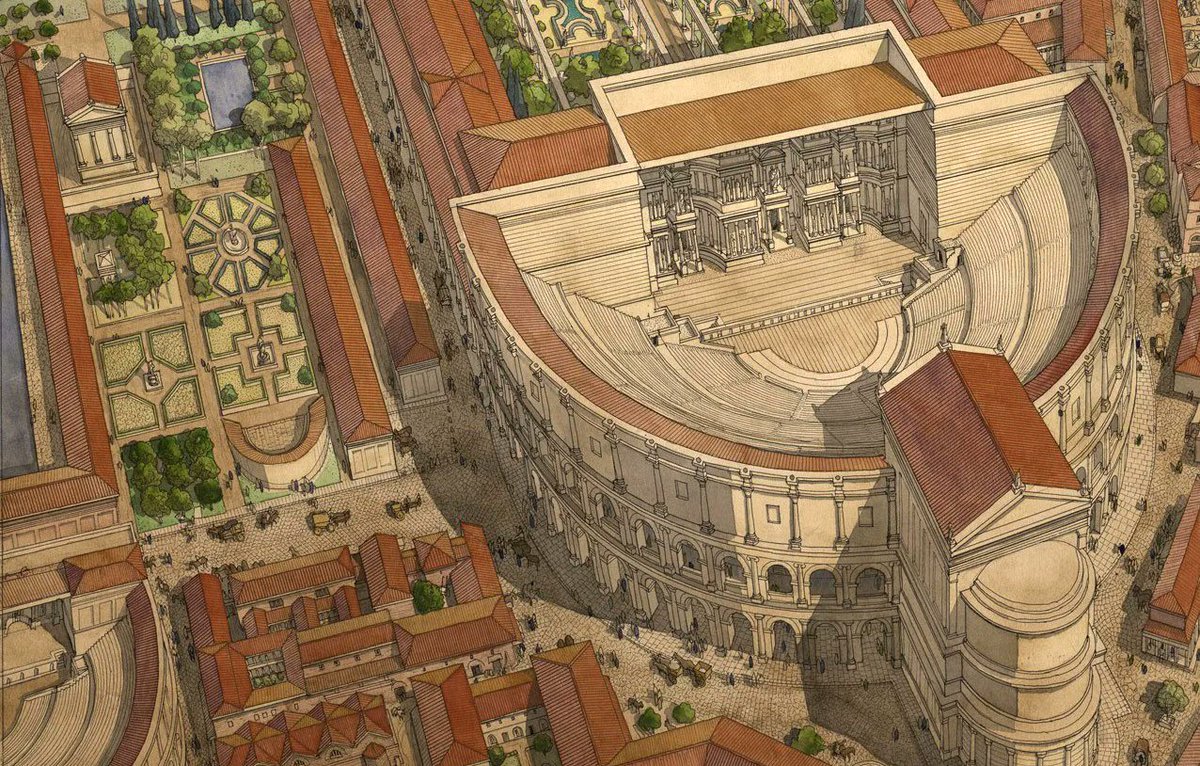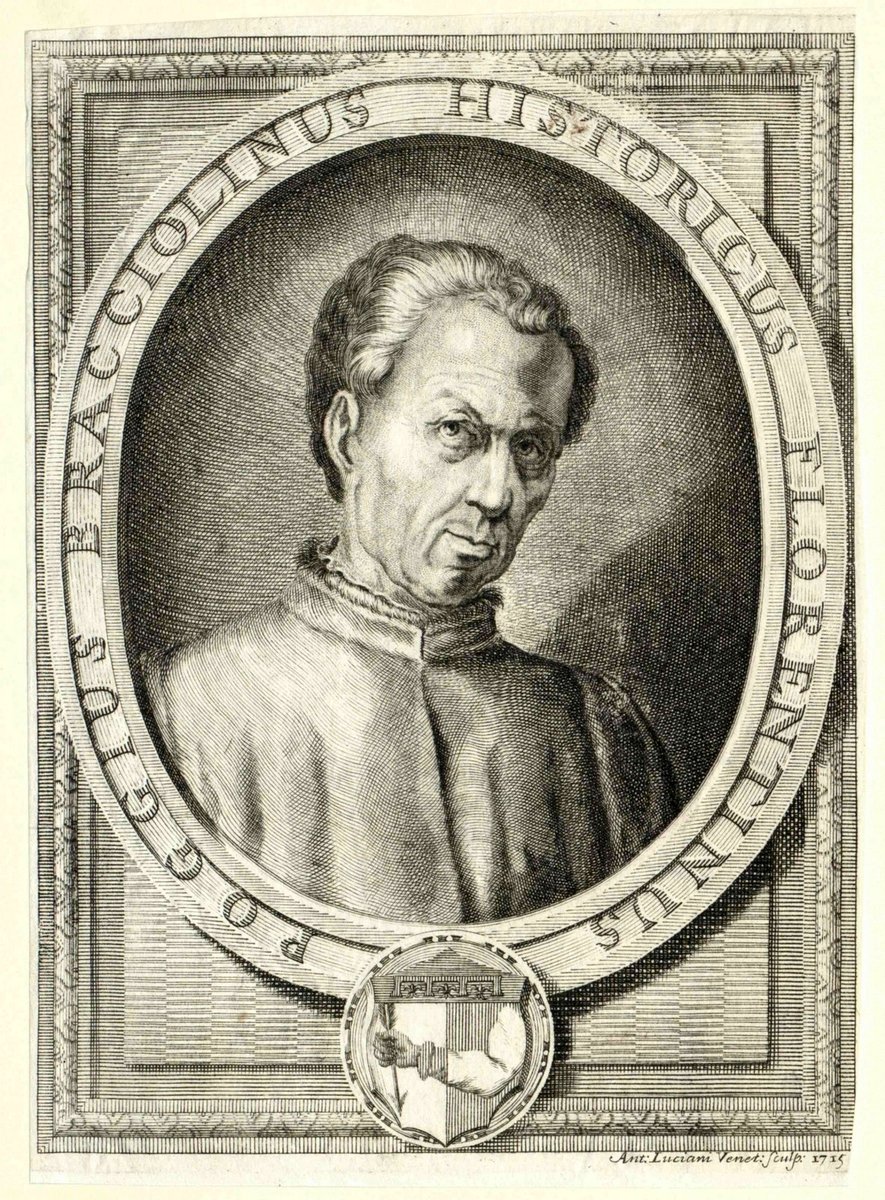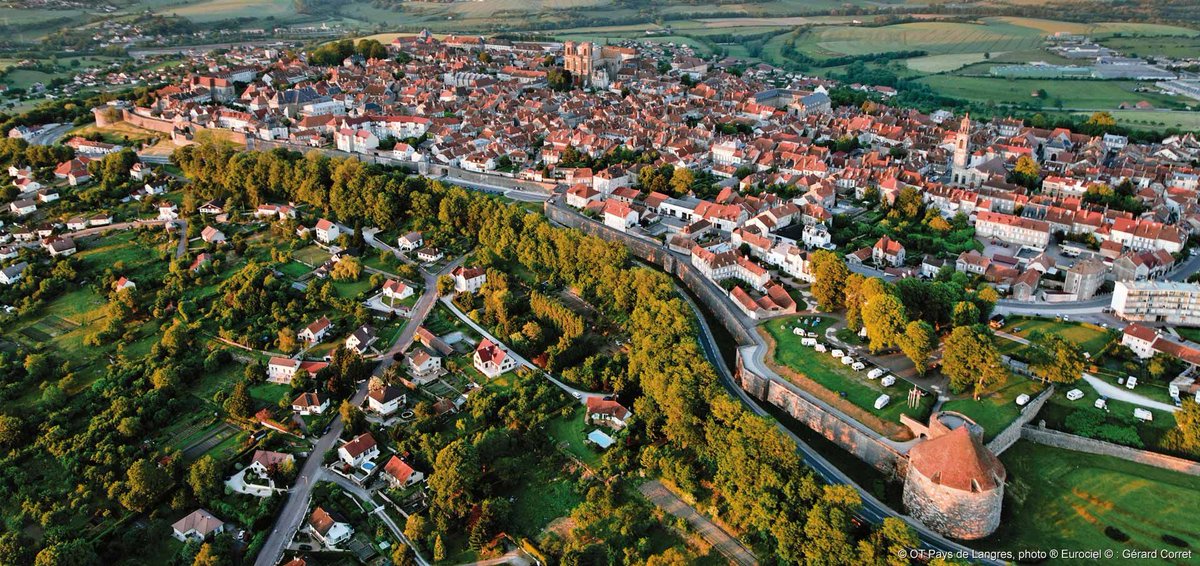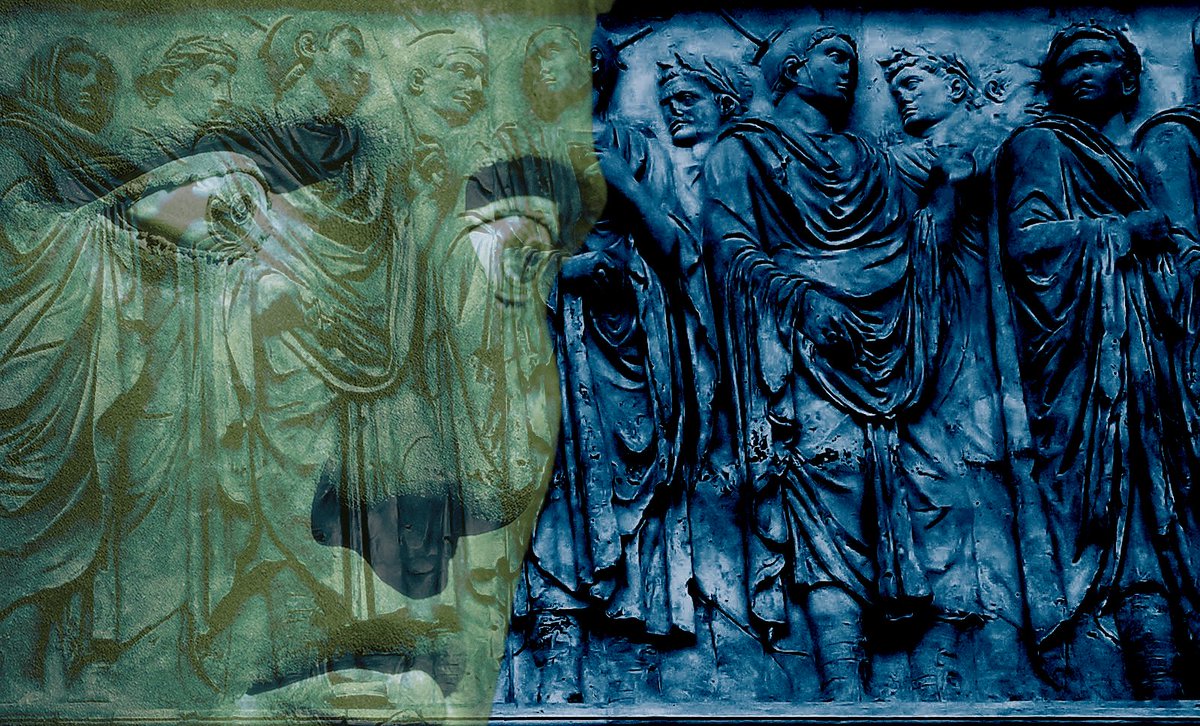
1) Let's take a Roman road trip with Horace and Virgil. In 37 BC the two famous poets accompanied their patron Maecenas (friend and advisor to Octavian) on an eventful journey across Italy. Maecenas was travelling to Athens delivering a message from Octavian to Mark Antony and.. 

2)..his poet friends would go with him as far as Brundisium (modern Brindisi). Instead of focusing on the weight of the diplomatic mission, Horace's description of the 600 km trip is filled with small details and comical anecdotes, a remarkable travelogue of friends on the road.. 

3) "I set out on my journey and left behind the bustling city of Rome. At the little town of Aricia (16 miles from Rome) I stopped at a small inn. My travelling companion was Heliodorus the rhetor, most learned of the Greeks. From Aricia we went to Forum Appii (27 miles).. 
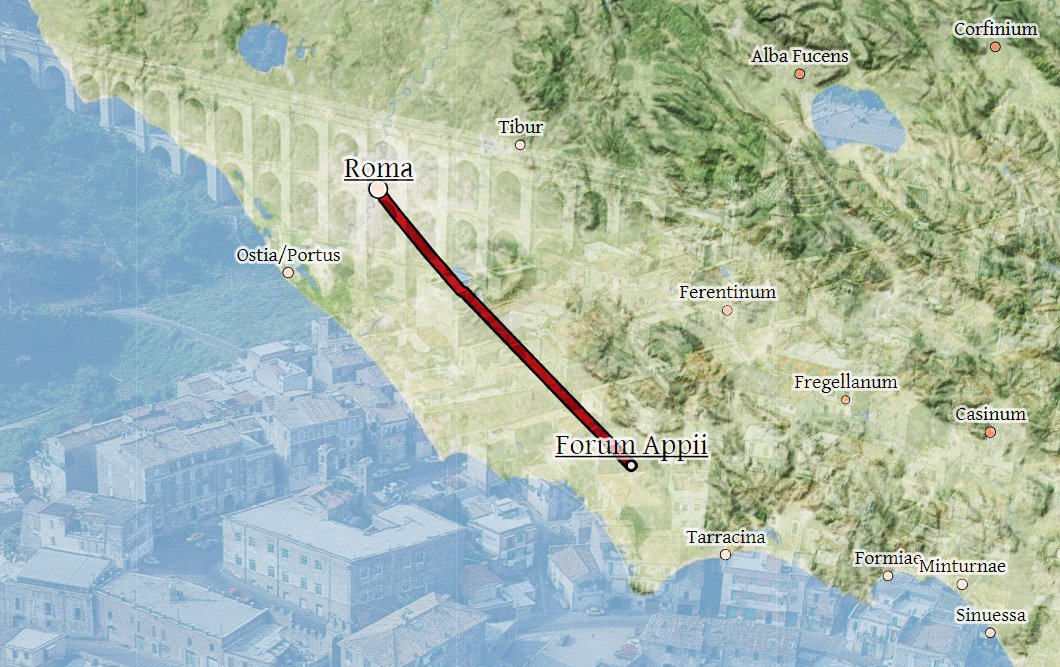
4) Forum Appii was crowded with bargemen and greedy innkeepers. Being rather lazy we had spread this part of the trip over two days, although more energetic travellers can make it in one – but the Appian Way is less tiring when taken slowly! 

5) Because of the foul drinking water at Forum Appii, I endured thirst and hunger pangs while my companions dined. Soon night would be preparing to spread her shadows over the earth and sprinkle her stars in the sky, so on to the canal through the Pontine Marshes.. 

6) Slaves shouting at boatmen, bargees shouting at slaves! "Pull over here!" "You're taking on hundreds!" "Oi, that's enough!" By the time the fare was paid and the mule hitched to the front of the barge, a whole hour had gone by! 

7) On the boat the damned mosquitoes and frogs in the marshes made sleep impossible, while the boatman and a passenger, both drunk on cheap wine, took turns singing about their absent girlfriends. At last, the passenger fell asleep and the lazy boatman left the mule to graze.. 

8) As day was dawning, we noticed the boat wasn't even moving an inch. One hothead jumped out of the boat and started beating the boatman and his mule on the head and backside with a willow stick. Finally, at around ten we disembarked at Feronia.. 

9) There we washed our hands and faces and had breakfast. After that we crawled for 3 miles up to Tarracina, perched on its shining, high cliffs. Here we had arranged to meet Maecenas, the best of men, and Cocceius - who were both acting as envoys on very important business... 

10) I smeared some black ointment on my sore eyes. Soon enough, Maecenas and Cocceius arrived and with them, Fonteius Capito - a refined gentleman and Mark Antony's best friend. Weary after a long day's travel we arrived at Formiae where we had dinner at Capito's villa.. 

11) We were eager to see dawn because the next day we met Virgil, Plotius and Varius at Sinuessa! The earth has not borne any souls more splendid than these and no one is more dearly attached to them than I. Oh how we hugged and laughed with glee - the joy of true friendship!.. 

12) A posthouse near the Campanian bridge provided us shelter for the night and the next day we travelled to Capua. There we had the mules unloaded and Maecenas played ball, but Virgil and I took a nap because playing ball is really not good for sore eyes and indigestion.. 

13) From Capua we travelled to Caudium, where that night Cocceius entertained us at his well-stocked villa on a hill above the town. Dinner was prolonged by all our laughter! From Caudium it was straight to Beneventum where an eager innkeeper almost burnt down his whole place... 

14) He was roasting some thrushes on a spit when some sparks fell from the fire onto the floor, and the flames spread quickly through the ancient kitchen and raced up to lick the roof. Hungry guests and slaves grabbed the food and then we tried to extinguish the fire! 

15) Soon after Beneventum, Apulia began to reveal her mountains so familar to me. They were scorched by hot wind and we would never have managed to crawl through them if an inn near Trivicum had not taken us all in for the night.. 

16) But the inn was filled with eye-stinging smoke because of green wood, leaves and all, burning in the fireplace. I stupidly waited up half the night for a deceitful girl who never came to me. When I did fall asleep, I was visited by Venus and wet my bedclothes.. 

17) The next day we raced over 24 miles in carriages and spent the night in a town where water was scarce and had to be paid for. The bread was excellent though, so we packed a few loaves for the journey. At Canusium, the poet Varius departed our group, leaving us in tears.. 

18) When we finally reached Rubi, we were exhausted after covering a long distance (23 miles), made even more uncomfortable by heavy rain. The next day, the weather improved but the road got worse, all the way up to the walls of the old fishing town of Barium (another 23 miles).. 

19) Then it was down the coast to Egnatia and finally to Brundisium. This was the end of a long trip and this is also the end of my papyrus!"
(Adapted from Horace's 'Satires', 1.5)
(Adapted from Horace's 'Satires', 1.5)

*** For anyone who would like to recreate Horace and Virgil's road trip your itinerary would roughly be:
Rome, Ariccia, Tor Tre Ponti, Terracina, Formia, Minturno, Mondragone, Montesarchio, Benevento, Ordona, Bari and Brindisi. 🇮🇹 ***
Rome, Ariccia, Tor Tre Ponti, Terracina, Formia, Minturno, Mondragone, Montesarchio, Benevento, Ordona, Bari and Brindisi. 🇮🇹 ***

• • •
Missing some Tweet in this thread? You can try to
force a refresh


